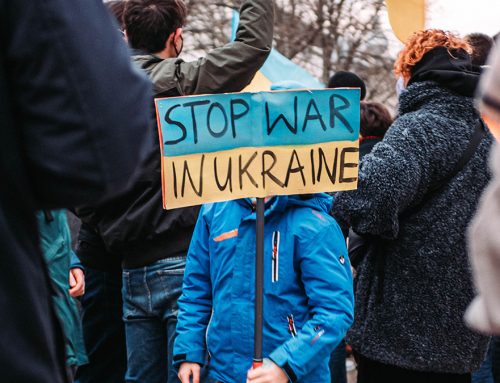Since taking my first tentative steps into the CDPB Fellowship Programme back in September, I have found myself developing and growing in ways which I had not anticipated; learning and unlearning, challenging, and validating, prejudice and trust. The more I grow, the more I seek to apply new systems into my own life. With every one of these systems that we apply there will be one singular constant: Change. An ironic suggestion, yet there it is – change is the only constant.
It is impossible – impossible – to stay the same. The human person is forever changing because the human experience is forever changing. As Tim O’Connor told us in Dublin, “If you’re not evolving, you’re dying.” There is a constant tension in each of us to determine if we want to be shaped and changed by the environment in which we find ourselves, or, if we want to shape and transform that environment ourselves?
Being shaped by the environment is the path of least resistance. It is coasting along a lazy river, going with the flow. It is an easy path to take as it means we can abandon any personal values, or principles. The path of least resistance allows some the luxury of populism, the froth of fashion, and the flavour of the month. The path of least resistance – and poor leadership – allows us to apportion blame when things go wrong; does not tell us why, but only who. It is reactive in the worst sense and never proactive.
The alternative, the proactive, is shaping the environment in which we find ourselves. This is significantly more difficult but ultimately more rewarding. The path of greater resistance. By choosing this way we stay true to the guiding principles and values that are part of our lives. This is the path in which there is no quick fix, but there is deeper and more lasting healing. There is sustainability. It is a path in which, when we find ourselves in situations of conflict, we do not apportion blame, but rather, seek why the problem exists and work from there.
Northern Ireland, the north, the North, the six counties, call it what you will; is the environment many of us find ourselves in. Consider our long and troubled history and the times in which individuals (perhaps we ourselves) have been shaped and defined by their environment and those who shaped the environment.
Consider those who were shaped, or manipulated, by the environment. A loud voice was rallying “They are the problem! They are the reason for your lot in life!” We all know where this road led to. Where does it begin though? With poor (albeit effective) leadership.
There were others who did not choose such a path, but rather embraced their role as leaders and sought to change the environment. This meant that the real wrongs of the day could be made right – poor housing, gerrymandering, the scourge of violence. By accepting that the person is not the problem, these leaders were better equipped to work for deeper and more lasting healing. Each of us today enjoys the fruit of that labour.
The person is not the problem, but they can be a part of the solution. Change is the only constant.
Here we are in 2021 and we see history repeating itself, though fortunately on a smaller scale. There are those who are coasting along and those who are being shaped by the environment they find themselves in. Are there voices who are seeking to transform that environment though?
Through the Centre for Democracy and Peace Building and its Fellowship Programme we have 22 leaders from political, civic, and business committed to working together and shaping the society in which we find ourselves.
Engaging in this process has allowed me to take a step back and observe instances in the past in which I sought to effect transformation in a given place or group, times in which it worked and times it did not. The constant theme that I have noticed is that the times in which it did not work were the times in which I perceived that I was a lone voice. There was no support, no network. The instances in which it did work worked because there was support there.
This has been the most important factor in this process; we are working together. We come from a diverse series of backgrounds, but there is unity in that diversity. A common goal and purpose: to make this place we each call home better, for everyone.
One of my personal heroes is Robert F. Kennedy. About progress and change, he said, “Progress is a nice word. But change is its motivator. And change has its enemies.” Kennedy and his late brother were seen as radical operatives of change in the United States. Both were tragically gunned down.
So, we know we will encounter resistance when seeking to effect change. However, if there is collective purpose, if there is unity in our diversity, and we have already taken the path of greatest resistance, then I believe there is nothing, absolutely nothing, that we cannot endure.
Change is the only constant. The bit I omitted at the opening is that while each of us has the ability to shape and transform our environment, in reality all of us are constantly affected and therefore changed by said environment. If we are shaping our environment for the better, and for the better of all, then this can only ever be a good thing. We are the change, and we are changed.
Or as Gandhi (supposedly) said, “Be the change you wish to see in the world.” It took me nine hundred words to say what he said in ten…I am still, always, learning…changing. That works for me!
Dominic O’Reilly



